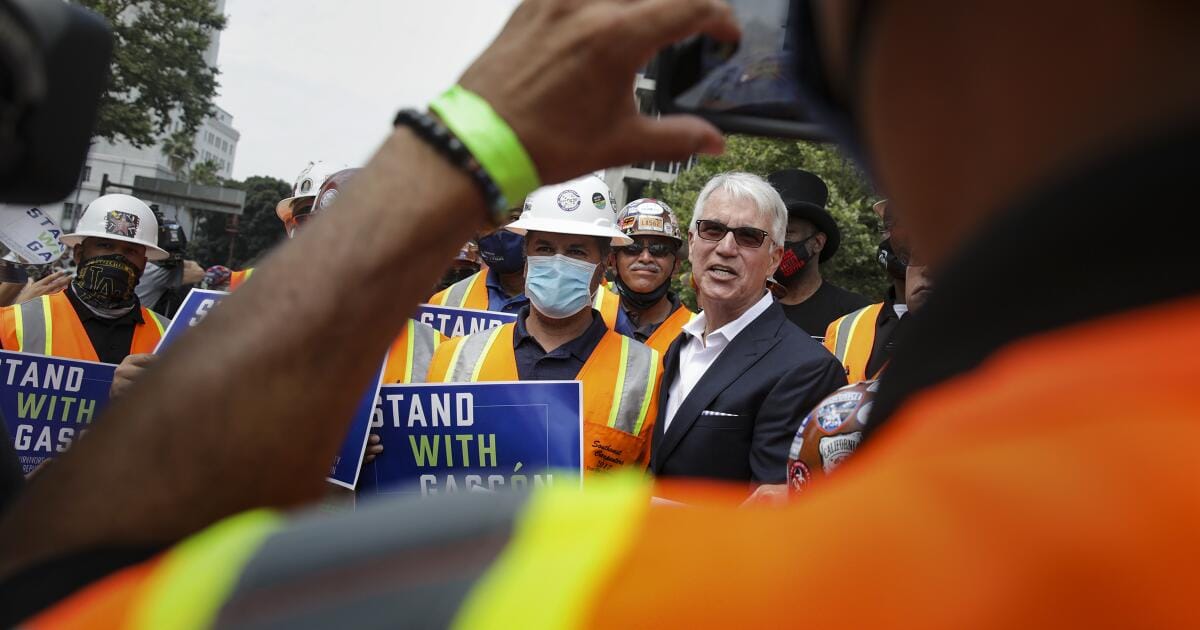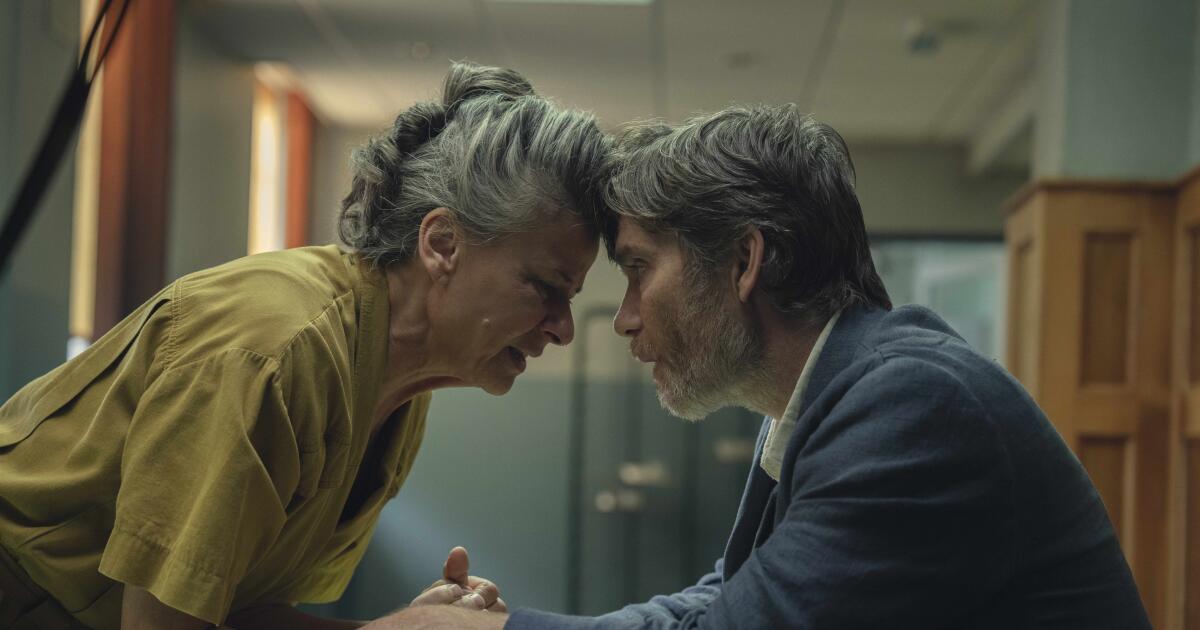Contributor: Voters want both ‘tough on crime’ and compassionate reform
Zohran Mamdani, the progressive standard-bearer who could become New York City’s next mayor after Tuesday’s election, faces a public-safety trap that has entangled progressives nationwide: Voters want less cruelty, not less accountability. Confuse the two, and even progressives will vote you out.
Even before he has taken office, Mamdani is already fending off attacks from opponents, including former Gov. Andrew Cuomo and other political adversaries. They seek to brand him as a radical by tying him to the national Democratic Socialists of America’s most controversial criminal justice planks, such as declining to prosecute misdemeanor offenses.
Yet, in distancing himself from those specific policies, Mamdani is cleverly navigating a political minefield that has doomed other reformers. His strategy demonstrates a crucial lesson for the broader progressive movement: voters want a less inhumane justice system, not one that is unenforced. If progressives are perceived as abandoning accountability for offenses like shoplifting and public drug usage, they invite a political backlash that will not only cost them elections (or reelections) but also set back the cause of reform nationwide.
Americans across the political spectrum support reducing extremely harsh punishments. They want shorter sentences, alternatives to incarceration and rehabilitation over punishment. The moral case against excessive punishment resonates with voters who see our system as unnecessarily cruel. The evidence is overwhelming: 81% of Americans believe the U.S. criminal justice system needs reform, and 85% agree the main goal of our criminal justice system should be rehabilitation.
But when it comes to deciding which behaviors deserve prosecution, the politics shift dramatically. Mamdani has previously aligned with the Democratic Socialists of America, an organization that calls for ending the enforcement of some misdemeanor offenses.
This is precisely the kind of stance that can trigger backlash. The 2022 recall of San Francisco’s progressive district attorney shows why. About 1 in 3 “progressive” voters cast a ballot to remove the progressive DA from office. It wasn’t because they disagreed with his policies; in fact, these same voters supported his specific reforms when his name wasn’t attached to them. Their opposition was rooted in a fear that declining to prosecute low-level crimes would create a deterrence vacuum and incentivize lawlessness.
In Los Angeles, George Gascón’s trajectory offers a cautionary tale. As Los Angeles County district attorney, he survived two recall attempts before losing his 2024 reelection bid by 23 points. L.A. voters hadn’t abandoned reform — they’d supported it just four years earlier. But Gascón’s categorical bans on seeking certain harsher sentences or charging juveniles as adults triggered a revolt from his own rank-and-file prosecutors, creating the perception that entire categories of misconduct would go unaddressed. When prosecutors publicly sued him, arguing his directives violated state law, the deterrence vacuum became tangible. By the time Gascón walked back some policies, voters’ trust had evaporated.
This pattern repeats across the country. In Boston, DA Kevin Hayden has distanced himself so forcefully from predecessor Rachael Rollins’ “do not prosecute” list that he bristles at reporters even mentioning it. Yet Hayden’s office is still diverting first-time shoplifters to treatment programs — the same approach Rollins advocated. The difference? Hayden emphasizes prosecution of repeat offenders while offering alternatives to first-timers. The policy is nearly identical; the politics couldn’t be more different.
Critics are right to argue that the old model of misdemeanor prosecution was a failure. It criminalized poverty and addiction, clogged our courts and did little to stop the revolving door. But the answer to a broken system is not to create a vacuum of enforcement; it is to build a new system that pairs accountability with effective intervention.
Mamdani has already shown political wisdom by declaring, “I am not defunding the police.” But the issue isn’t just about police funding — it’s about what behaviors the criminal justice system will address. As mayor, Mamdani would not control whether the prosecutors abandon prosecution of misdemeanors, but what matters are his stances and voters’ perception. He should be vocal about how we thinks prosecutors should respond to low-level offenses:
- First-time shoplifters: Restitution or community service.
- Drug possession: Treatment enrollment, not incarceration.
- Quality-of-life violations: Social service interventions for housing and health.
- DUI offenders: Intensive supervision and treatment.
To be clear, this isn’t about ignoring these offenses; it’s about transforming the response. For this to work, the justice system must use its inherent leverage. Instead of compelling jail time, a pending criminal case becomes the tool to ensure a person completes a treatment program, pays restitution to the store they stole from, or connects with housing services. This is the essence of diversion: Accountability is met, the underlying problem is addressed, and upon successful completion, the case is often dismissed, allowing the person to move forward without the lifelong burden of a criminal record.
Mamdani’s proposed Department of Community Safety is a step in the right direction. But it must work alongside, not instead of, prosecution for lower-level offenses, and Mamdani must frame it as a partner to prosecution. If voters perceive it as a substitute for accountability, his opponents will use it as a political weapon the moment crime rates fluctuate.
New York deserves bold criminal justice reform. But boldness without pragmatism leads to backlash that sets the entire movement back. The future of the criminal justice progressive movement in America will not be determined by its ideals, but by its ability to deliver pragmatic safety. For the aspiring mayor, and for prosecutors in California and beyond, this means understanding that residents want both order and compassionate justice.
Dvir Yogev is a postdoctoral researcher at the Criminal Law & Justice Center at UC Berkeley, where he studies the politics of criminal justice reform and prosecutor elections.

